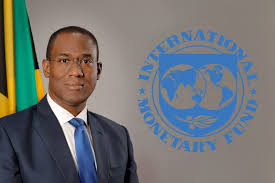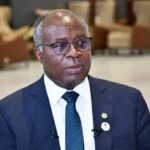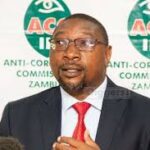By Cecilia Chiluba
International Monetary Fund (IMF) Deputy Managing Director has urged Zambia to navigate weaker global trade, elevated uncertainty, and declining external assistance.
Nigel Clarke who visited Zambia from 4th to 6th May, 2025, noted that Zambia’s policy environment remains challenging in the wake of the weaker global trade.
In a statement, Mr. Clarke said structural reforms to improve productivity and support private sector activity will help boost inclusive growth, delivering the much-needed jobs for Zambia’s vibrant youth.
He emphasized that continued reform momentum will be essential to build resilience, mobilize domestic revenues, and create fiscal space to support inclusive growth.
Mr. Clarke however observed that Zambia’s economic reform program supported by the IMF’s Extended Credit Facility (ECF) has been strong, despite repeated external shocks.
The IMF has an Extended Credit Facility agreement with Zambia, approved on August 31, 2022, for US$1.3 billion. This was later augmented in July 2024 to a total of US$1.7 billion, including an additional SDR 293.46 million (or US$385.7 million).
The program supports Zambia’s Eighth National Development Plan, focusing on macroeconomic stability, debt and fiscal sustainability, public governance, and inclusive growth.
“Since the program was approved in August 2022 and augmented in 2024, it has provided critical support, both financial and policy-based, and helped to anchor Zambia’s landmark debt restructuring under the G20 Common Framework and navigate last year’s severe drought.”
“Zambia’s remarkable progress has centered on restoring macroeconomic stability, including fiscal and debt sustainability, and implementing reforms,” Mr. Clarke said.
He cited the removal of fuel subsidies, strengthened debt management, and the roll-out of a reformed agricultural input subsidy, the e-voucher system, which has increased competition in input delivery, reduced costs, and supported job creation, as some of the notable reforms.
“These achievements have been particularly impressing given the challenging external and domestic environment. In my discussions with the authorities, I also welcomed their commitment to strengthen governance and anti-corruption policies,” he added.
“I leave Zambia optimistic about the country’s future, encouraged by the authorities’ determination to continue on their reform path, and reassured by the Zambian people’s resilience.”
And addressing Journalists at a media briefing on Monday, Mr. Clarke advised the Government to diversify its sources of energy and other forms of renewable energy including solar, to mitigate the impact of natural disasters such as drought on power supply.
He also urged the Bank of Zambia (BoZ) to ensure that its Monetary Policy stance is supportive of stable prices to counter inflation which has been rising.



